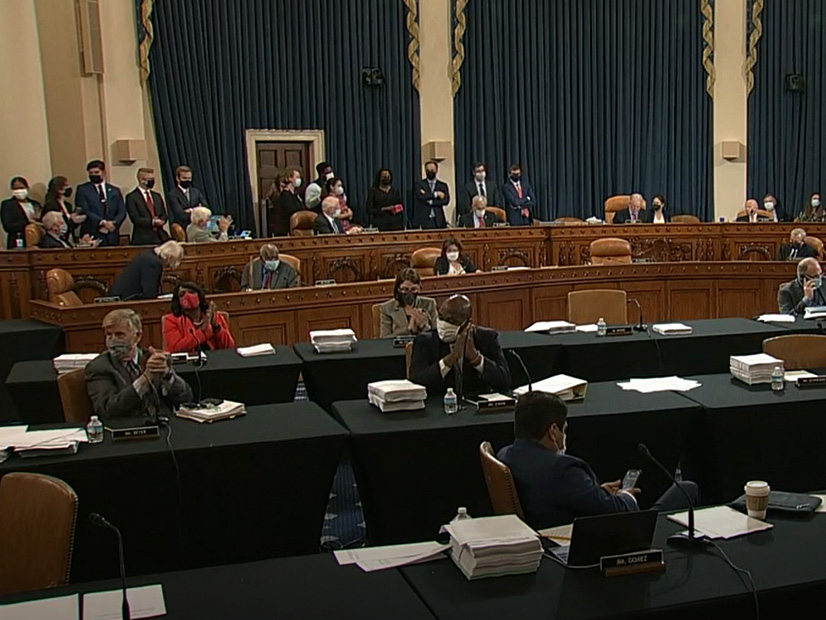
The House Ways and Means Committee on Wednesday approved the Democrats’ $3.5 trillion spending package, which includes billions for energy efficiency, renewables and electric vehicles.
The committee cleared the Build Back Better Act on a 24-19, party-line vote, sending it on to the Budget Committee. Democrats applauded as the committee completed its four-day markup of the massive bill. “Oh yes!” exclaimed Rep. Linda Sanchez (D-Calif.), when it came her turn to vote.
Committee Chair Richard Neal (D.-Mass.) said the bill includes “substantial investments in the development and deployment of clean energy to do our part in fighting the climate crisis while also creating good, well paying jobs across the country.”
Rep. Don Beyer (D-Va.), co-chair of the Safe Climate Caucus, said the bill “will be the single most important piece of climate legislation we have ever had the chance of passing.”
Ranking member Kevin Brady (R-Texas) countered that the spending package and tax increases would kill jobs and harm small businesses. “Small business owners should dream about passing their success on to future generations,” he tweeted. “Increasing taxes on families and entrepreneurs is why small businesses are fighting against the $3.5 trillion stimulus Congress and the president are considering.”
Democrats hope to pass the package through the reconciliation process to avoid a Republican filibuster in the Senate. But they may need to scale back their ambitions considerably to win the backing of Sens. Joe Manchin (D-W.Va.) and Kyrsten Sinema (D-Ariz.), who have said they would not support such a large spending bill. CNN reported that Manchin arrived at the White House late Wednesday afternoon for a meeting with President Biden, who has been campaigning in support of the bill.
In addition to expanding social safety net programs, the package includes billions in spending on energy, including credits for renewable electricity production and renewable fuels, and incentives for electric and alternative fuel vehicles.
Paula Glover, president of the Alliance to Save Energy, praised its inclusion of several tax credits for energy efficiency, including a change she said “would allow homeowners to budget and plan multiple energy efficiency investments over several years.”
American Clean Power Association CEO Heather Zichal called the vote “another critical step forward for the domestic clean energy economy.”
“The provisions in this legislation will enable the continued rapid deployment of renewable energy projects along with energy storage and transmission upgrades to help our nation address the climate crisis,” she added.
But the Sierra Club lamented that Democrats failed to cut subsidies for the fossil fuel industry and that the bill “maintains the status quo by needlessly incentivizing technologies that will not advance us towards our truly renewable and clean goals, such as credits for municipal solid waste, biomass, carbon capture and utilization, and nuclear facilities.”



